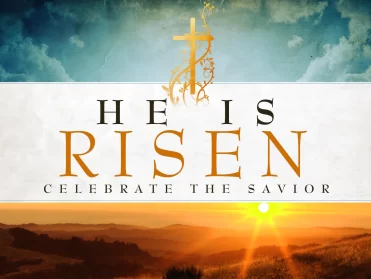Thanksgiving

- November 1, 2023
- By EB Church
- No Responses
Fall is a special time in our churches. It is a time of festive services celebrating God’s care for us. It is a season of Harvest and Thanksgiving feasts, preparing us for the feast of Christmas and, reminding us of God’s love.
As a wish, I would like to read together Psalm 100, the only psalm with the title “A Psalm for Thanksgiving” (NASB).
The Hebrew word for “thanksgiving” here literally means “confession.” In this case it means confession of God’s character and His works. Psalm 100 concludes the section of the book that encompasses Psalms 92-100, in which God is proclaimed King. These verses are overflowing with the exultant joy of those who recognize themselves as God’s people.
It is a very short psalm, but it certainly brings to us the deepest insight into the theology and practice of praise. The four verses of exhortation are followed by one verse explaining the reason for the exhortations. The exhortation verses present seven commands concerning glorification: cry out to the Lord (v. 1); serve the Lord (v. 2a); go before His face (v. 2b); recognize (v. 3); enter His gates (v. 4a); praise Him (v. 4b); bless His name (v. 4c). Then verse 5 explains the reason for these commands. I would like to begin with the reason and then move on to the commands.
I. God’s attributes are the reason for our gratitude (Ps. 100:5).
1. God is good. In the Acts of the Apostles we read of Paul and Barnabas preaching in Lystra. The people of that city worshiped a number of false gods and knew nothing of the true God. In explaining to them what the true, living God is, Paul declared in Acts 14:17: “(God) did not leave Himself without witness, in that He did good and gave you rains from heaven and fruitful seasons, satisfying your hearts with food and gladness.”
God’s goodness is evidenced by the fact that He is always ready to help us in our time of need. Nahum 1:7 emphasizes: “The Lord is good, A stronghold in the day of trouble, And He knows those who take refuge in Him.” Lamentations 3:25 reminds us, “The Lord is good to those who wait for Him, To the person who seeks Him.”
2. God’s mercy is everlasting. As we read the Word of God, we constantly see the Lord’s mercy manifested. Mercy is one of God’s outstanding attributes. Psalm 118:64 declares: “The earth is full of Your lovingkindness, O L ord ; Teach me Your statutes…”. 2 Cor. 1:3 speaks of God as the “Father of mercies.” Mercy is kindness to those who do not deserve it, and that is us – all of us.
The greatest demonstration of God’s mercy, as well as the greatest demonstration of His goodness, is that He sent His Son, Jesus Christ, to die on the cross for our sins so that we, by repentance and faith, could be saved – and it is only through His mercy that anyone can be saved. The Bible emphasizes this truth over and over again.
Furthermore, it is because of God’s mercy and goodness that we can endure the most difficult times of life. Psalm 58:16 says, “But as for me, I shall sing of Your strength; Yes, I shall joyfully sing of Your lovingkindness in the morning, For You have been my stronghold And a refuge in the day of my distress.” Jeremiah says, “This I recall to my mind, Therefore I have hope. The Lord’s lovingkindnesses indeed never cease, For His compassions never fail. They are new every morning; Great is Your faithfulness” (Lamentations 3:21-23).
The author of Hebrews shows us this in Hebrews 4:15-16: “For we do not have a high priest who cannot sympathize with our weaknesses, but One who has been tempted in all things as we are, yet without sin. Therefore let us draw near with confidence to the throne of grace, so that we may receive mercy and find grace to help in time of need.”
Psalm 23:6 says, “Surely goodness and lovingkindness will follow me all the days of my life, And I will dwell in the house of the Lord forever.”
3. God’s faithfulness is to all generations. This is another way of saying it is eternal. God is unchanging. He is faithful to His eternal attributes. He is faithful to His covenant promises. The Bible contains evidence of His faithfulness to His people in the past. It also shows how He will be faithful to His promises to glorify His people in the future. And so we can rely on His faithfulness in the present, no matter what trials we are going through. As Psalm 118:75-76 affirms, “I know, O Lord, that Your judgments are righteous, And that in faithfulness You have afflicted me. O may Your lovingkindness comfort me, According to Your word to Your servant.”
Therefore, we must always and in all situations proclaim: “Lord, You are good to me! Your goodness and Your faithfulness are always with me. You will never leave me nor forsake me” (Hebrews 13:5).
As we realize the reason for our praise, we can see in the first four verses how the truth of God’s goodness should affect us.
II. Expressions of gratitude (Psalms 100:1-4).
God is ready to meet us anywhere and at any time, but we must come into His presence with heart and mind, body and soul, recognizing the presence of the King.
1. Cry out to the Lord, “Shout joyfully to the Lord, all the earth” (Psalm 100:1). This is a repetition of the verse of Psalm 98:4. The psalmist notes that Israel has a special relationship with God and encourages the worshipers to praise the Lord for His faithfulness.
Notice, sincere rejoicing in the Lord is an establishment for all. The Psalmist says, “Shout to the Lord, all the earth.”
2. Serve the Lord: “Serve the Lord with gladness” (Psalm 100:2). In Scripture, the word “service” is used to refer both to a way of life in general – the broader, vital use of the term – and to a specific activity – the narrow, personal use of the term. In this case, the psalmist is speaking of a specific and personal activity that expresses the glorification of God. We glorify God by giving Him the honor and worship that is due Him because He is God.
“Serve the Lord with joy.” This command has two parts: “Serve the Lord”; and “do it with joy.” Do you serve the Lord? Do you do it with joy for all that He has done for you?
If we do not serve Him with joy, there will be dire consequences (Deuteronomy. 28:47-48): “Because you did not serve the Lord your God with joy and a glad heart, for the abundance of all things…”.
3. Go before His face: “Come before Him with joyful singing” (Psalm 100:2).
The deciding factor in worship in the church is not the form of worship, but the state of worship. If our general church worship is not an expression of our personal, God-confessing lives, it will not be acceptable. If you think you can live any way you want and then go to church on Sunday morning and participate in worship, you are mistaken.
4. Know God: “Know that the Lord Himself is God” (Psalm 100:3). We acknowledge that Jesus is our Savior and submit to Him as Lord.
We remind ourselves of who God is and at the same time remind ourselves of who we are. (1) He is the Creator; we are the created. (2) He is the shepherd; we are the sheep. (3) He is the leader; we are his people. We are totally dependent on him for everything. In other words, he is God and we are not.
Knowing God is the intellectual side of our worship as we come to know God and learn to follow the plan of his will.
5. Enter His gates, “Enter His gates with thanksgiving And His courts with praise” (Psalm 100:4). Drawing an analogy to the temple, the psalmist informs us of how to open the door into the presence of God. The gate was part of the outer wall surrounding the temple area. Through the gate a person entered the temple complex. When we enter the presence of God, we enter the gate with thanksgiving – we thank God for what He has done. After passing through the gate, the worshipper enters the courtyard with praise – here we praise God for who He is. There is a sense of moving from the outer to the inner, of drawing closer to the presence of God.
Although God is Omnipresent, it is when we worship Him that we truly realize God’s presence. God manifests Himself in the praise of His people. David wrote of God: “Yet You are holy, O You who are enthroned upon the praises of Israel” (Psalm 22:3). God is magnified in our praise. Thus, our praise creates an atmosphere for fellowship with the King. We come to God with thanksgiving and praise on our lips and in our hearts.
6. Praise God: “Give thanks to Him” (Psalm 100:4). Notice the repetition in verse four. Praising God and praising Him are repeated twice so that we do not miss the importance and seriousness of thanking God. The word “praise” means to kneel. It conveys the idea of expressing honor and reverence to God by kneeling before him as King of kings and Lord of lords. True worship always involves falling at the feet of God.
7. “Bless His name” (Psalm 100:4).
What do we know about the name – the person, character, nature – of God? The psalmist reminds us that “the Lord is good” (Ps. 100:5); He is gracious and kind. “His lovingkindness is everlasting” (Psalm 100:5). God has bound us to Himself by a covenant or contract that He will never revoke or forsake. “His faithfulness abides in all generations” (Psalm 100:5). God is not changing or forgetful. He does not change his mind, take back his offer of grace and salvation, or break his promises.
We must devote our lives to understanding the Person of God. We must begin to grasp, however weak our minds and hearts may be, the greatness, holiness, wisdom, goodness, loving-kindness, and truth of God’s name. This is the essence of worship, to bless, fall down, and give glory to God’s name. Heartfelt worship is a deep, sincere confession of the goodness, love, and faithfulness of our Creator God. Let us live in such a way that we are ready to meet Him.
Tags:
Share:
You May Also Like
Categories
- Проповеди (6)
- Размышления (6)






Leave A Comment